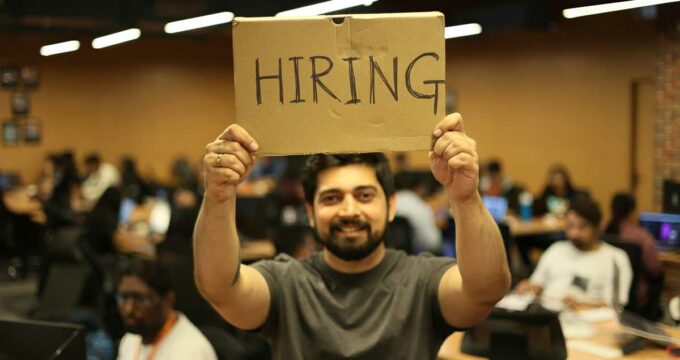How can educators better support and protect LGBTQ+ international students?
- LGBTQ+ international students can face a “double barrier” that isolates them on foreign campuses
- Many countries sending large volumes of students abroad also criminalise same-sex unions in their society
- LGBTQ+ students coming from those countries can face serious mental health issues and may even be fearful for their safety or of returning home
- NAFSA has covered the issue comprehensively and has shared tips for educators wanting to improve their supports for LGBTQ+ international students
June is Pride Month in many parts of the world and in some ways the month-long celebration and reflection means more than ever. Along with women’s rights, LGBTQ+ rights are increasingly under pressure in many countries. Consensual sex between same-sex partners is even punishable by death in certain places – Uganda being the latest country where a government has imposed this draconian measure.
A large proportion of international students come from countries where governments restrict or outlaw LGBTQ+ rights. The Washington Post reports that of the 64 or so countries that still criminalize same-sex relationships, at least half — at least 32 by most counts — are in Africa. For example, international students from Nigeria, Kenya, Ghana, Morocco, Egypt, Ethiopia, and Cameroon are coming from societies in which the law allows LGBTQ+ people to be persecuted, jailed, or worse.
The map below offers a stark illustration of geographic zones most affected by intolerance of LGBTQ+ people.

Outside Africa, consensual same-sex acts are illegal in the following countries, many of which send significant numbers of foreign students to schools and universities in destinations such as Australia, Canada, Germany, France, UK, and the US:
- Bangladesh
- Iran
- Iraq
- Kuwait
- Lebanon
- Malaysia
- Myanmar
- Pakistan
- Qatar
- Saudi Arabia
- Sri Lanka
- Syria
- Turkmenistan
- UAE
- Uzbekistan
The implications of so many international students coming from countries in which being LGBTQ+ is at best frowned upon or at worse illegal are profound. Considering them is incredibly important for educators striving for inclusive, safe, and tolerant campuses.
For example, educators need to know that within their international student population, there are almost certainly students who:
- Have come to campus with intolerant attitudes towards their LGBTQ+ peers, attitudes they developed in their home country and that have travelled with them to their host institution.
- Face discrimination or harassment from other international students (especially from their home country) because of their LGBTQ+ identity.
- Are closeted (i.e., hiding their sexual orientation) because of the environment in their home country. Those students are often fearful of coming out even in a destination where LGBTQ+ rights are protected – especially to international students and/or students from their home country. For example, they may be worried they will be featured in social media posts that could “out” them back home where they could face ostracisation from friends and family upon returning … or worse.
- Want to be open and free with their identity but who feel intimidated or unsure of cultural norms on campus and the wider community.
Not surprisingly, LGBTQ+ international students often endure a high level of stress and can be more susceptible to poor mental health than other students. International students are already more prone to feelings of isolation than domestic students are, and being LGBTQ+ can be even more isolating.
At a recent NAFSA conference in the US, a presentation by Kei Mamiya from Mississippi State University, Asia King from Diversity Abroad, and Dr Tony Lee from Texas A&M University helped attendees to better understand and support LGBTQ international students. Their presentation was entitled “Between Worlds: Developing a Toolkit for Supporting LGBTQ+ International Students.”
The struggle is real
Student verbatims were a powerful component of the “Between Worlds” presentation. For example:
- "Most of the time I feel like I have to compartmentalise and decide which part of my identity to share. With other international students, I am in the closet. With other LGBTQ+, I have to ignore microaggressions about third world countries or brown people.”
- "I think it would be nice for staff/faculty to have some idea of what to do if an international LGBTQ+ student is facing police harassment, ostracism from their country people on campus, or financial insecurity because their family ex-communicated them.”
- "I would say that if I had to go back home, I would have to throw my identity out the window. I would only be able to live in my country if I were able to live on my own to reduce my relationship with my family. Or I could choose to be with my family. It's like an ultimatum."
- "I am open on campus, but I don't volunteer the information. I don't want to hide, but at the same time, I don't really like random people knowing about my personal life. The Indian community can be homophobic to a certain extent, I don't need people being weird around me."
Those verbatims align with what Struby Struble, coordinator of the Missouri University LGBT Resource Center, calls the “double barrier” faced by LGBTQ+ students: "With their international student friends, they feel isolated because they're the LGBT one, but then among the LGBT students on campus, they feel isolated because they're the international one."
Creating safe spaces is a must
The “Between Worlds” presenters recommend the following activities for institutions wanting to improve their support of LGBTQ+ international students:
- LGBTQ+ Support Groups (e.g., housing, student organization, LGBTQ+ center, DEI office, other resources)
- Cultural Orientation Sessions
- LGBTQ+ Workshop/Training
- LGBTQ+ Counseling Services
- LGBTQ+ Community/Local Organizations
- LGBTQ+ Events
- Online Resources (e.g., website, social media, online forums)
They discussed the success and limitations of a “Be You at MSU” LGBTQ+ Identity Development and Resilience Program. That workshop was created to create a safe space for LGBTQ+ students to develop knowledge and skills to be resilient, to explore their gender/sexual identity, and to engage with other LGBTQ+ people about their experience.
The workshop discussed strategies for becoming more resilient and for interrupting forms of oppression. While “participants felt unease or uncomfortable to engage in conversation about intimate relationships in the LGBTQ+ community in terms of body, sex, and relationship types,” they also “greatly learned ways to critically reflect upon own gender identity and sexual identity in relation to their own contexts as well as ways to affirm their LGBTQ+ identities and be and love who they are.”
More tips for supporting LGBTQ+ students
NAFSA has published an excellent article devoted to the challenges faced by LGBTQ+ international students and best practices for educators aiming to support them. Recommendations include:
- “Encouraging international student advisers as well as faculty and other student-support staff to participate in LGBT awareness training in order to better understand and support LGBT students.
- Displaying items in the international student and scholar services office that show inclusivity and acceptance of the LGBT community, such as Safe Zone stickers, rainbow flags, artwork, ally magazines, brochures for LGBT support hotlines, or flyers for gay-straight alliance student groups.
- Inviting LGBT resource offices or LGBT student groups to speak or distribute material at international student orientations.”
Be sensitive to cues and ready to guide
If an international LGBTQ+ student confides in a faculty member, school counsellor, or international student office employee about their identity, it’s quite possible that they are having trouble and are signalling that they need help. George Kacenga, director of international enrollment management at the University of Colorado-Denver, told NAFSA:
“Students usually reveal this type of information for a reason—whether it's because they are having a roommate conflict, they feel they have been discriminated against, they are seeking counselling, or they're just looking for community—and it is important to make sure you direct them to the appropriate resource. If your campus doesn't have an LGBT resource center, check to see if another university in your town does.”
Residence life staff are also good resources, “as they have usually been trained to deal with a variety of student issues and know how to access campus resources.”
The prospect of going home
Mr Kacenga also points out that for many LGBTQ+ international students, the end of their programme can be a distressing part of their experience abroad:
"Hate crimes are very real. Whether they've been here for their entire undergraduate degree or for two years for graduate school, at some point they may need to go home and return to that setting. And that can be really hard for a student who's come here and experienced freedoms we take for granted." Speaking to NAFSA, Mr Kacenga “compares the grief that these students feel to that felt by some female international students returning to conservative societies that will not afford them the same freedoms they have experienced in the United States.”
Clearly, making counselling available to LGBTQ+ students preparing to go home is an important service to consider.
Step forward
Missouri University’s Ms Struble says university staff should not be timid in offering help to LGBTQ+ students:
"I think a lot of professionals are scared that if they're not an expert that they can't be of help. But you can. Just sending someone as a referral to an LGBT center, to a counselor you trust, or to a website…anything is enough to show support for that student. You don't have to be an expert. You don't have to understand the transition process for transgender students or have an in-depth knowledge of the LGBT community in order to be supportive of the student across the desk from you."
For additional background, please see:
















